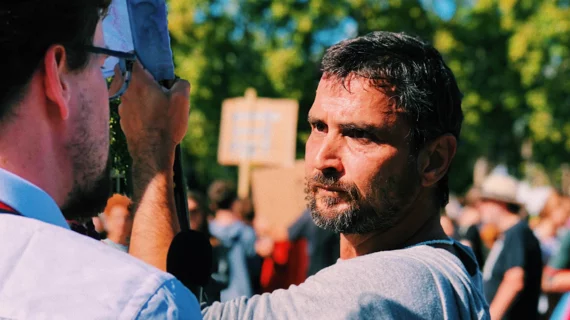What stakeholders are saying about the largest healthcare strike in history
Many healthcare watchers were taken by surprise when upwards of 75,000 Kaiser Permanente workers went on strike last week. The walkout was said to be the largest ever in U.S. healthcare. Yet, apart from directly affected communities, few seemed to have seen it coming.
Perhaps more should have. The workers’ demands were not categorically different from those voiced in previous healthcare strikes this year. Only the massive headcount made last week’s stoppage a standout.
Meanwhile it matters that this has been a year of strikes in the U.S. across multiple industries. Solidarity is contagious.
What do dissatisfied healthcare workers in particular want before returning to their posts with improved attitudes? Two main things: pay raises to match the rising cost of living and new hires to relieve undermanned staffs and, in the process, ensure care quality and patient safety.
A lesser but not insignificant concern is outsourcing protection for staffers.
The Kaiser Permanente strike is over for now. It ended over the weekend. Most of the strikers were represented by the 85,000-member Coalition of Kaiser Permanente Unions, and the action was mostly limited to Kaiser facilities in California, Colorado, Washington and Oregon. Still, no deal has yet been struck, and unions are planning more stoppages at Kaiser and other health systems around the country.
If your area hasn’t been hit, don’t assume you’re out of the woods.
Consider a handful of perspectives offered from both sides of the picket line as the strike began, unfolded and wrapped up.
- “We are confident that we will reach an agreement that strengthens our position as a best place to work while ensuring that our high-quality care remains affordable and easy to access.”—Kaiser Permanente in an official statement posted just ahead of the strike
- “There are nurses sleeping in their cars because, one, they can’t afford the cost of living here and, two, because of short staff they’re working 14, 16 hours, so they’re tired. I’m having flashbacks of what it was like back home, growing up [in Mexico].”—Rocio Chacon, Kaiser striker and union co-negotiator, quoted at CNN and elsewhere
- “Kaiser Permanente has experienced the same challenges that many other healthcare organizations have experienced since COVID, with a lot of burnout [and] people leaving the field. … We were able to outreach some of our patients and bring them in early in advance of the strike in case they didn’t feel comfortable receiving care during a strike.”—Kelli Kane, Kaiser vice president of ambulatory operations, quoted at Fox-31 TV in Denver
- “We’re burning ourselves out trying to do the jobs of two or three people, and our patients suffer when they can’t get the care they need due to Kaiser’s short-staffing. Kaiser executives are refusing to listen to us and are bargaining in bad faith over the solutions we need to end the Kaiser short-staffing crisis.”—Jessica Cruz, Kaiser nurse, quoted in the Sacramento Bee
- “We are pleased to welcome back our employees who participated in this week’s strike. With the current strike behind us as of 6:00 a.m. Saturday (Oct. 7), our collective focus is a return to normal operations.”—Kaiser Permanente in a statement quoted at KTVU Fox-2 in Oakland, Calif.
- “We’re patients, our family members are patients and our communities are patients, so when we can’t get the care that we need due to a staffing crisis, it just hurts us to the core. … Our resolve to advocate for the safe staffing that our patients need has never been stronger.”—Georgette Bradford, Kaiser ultrasound technologist and union co-negotiator, quoted at ABC-10 TV in Sacramento

